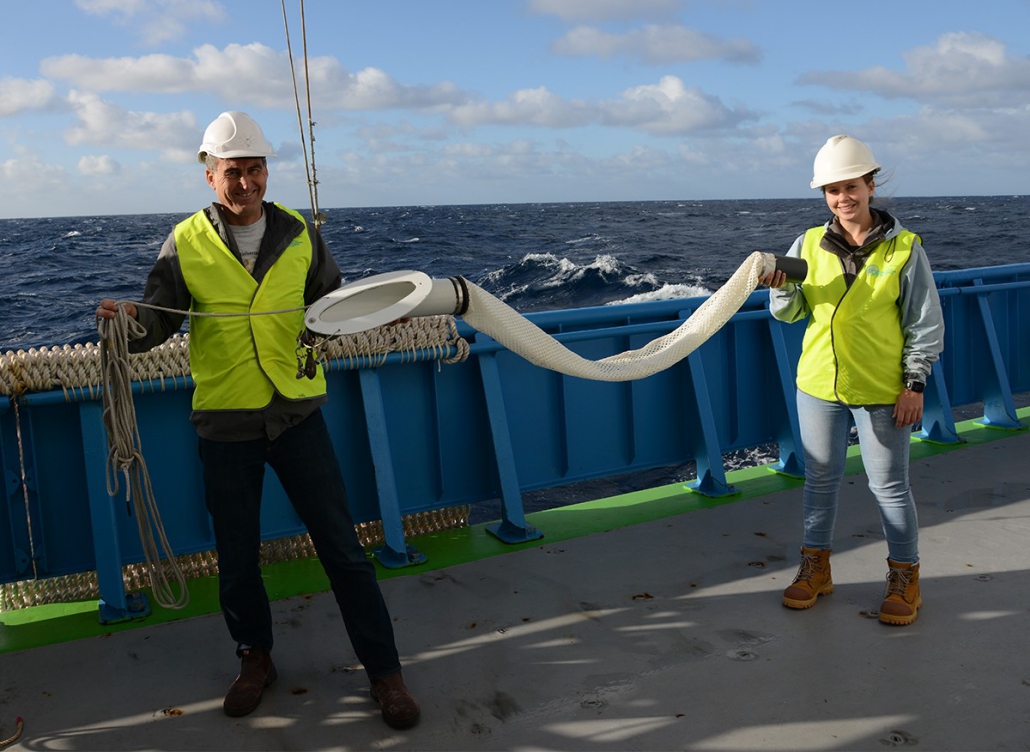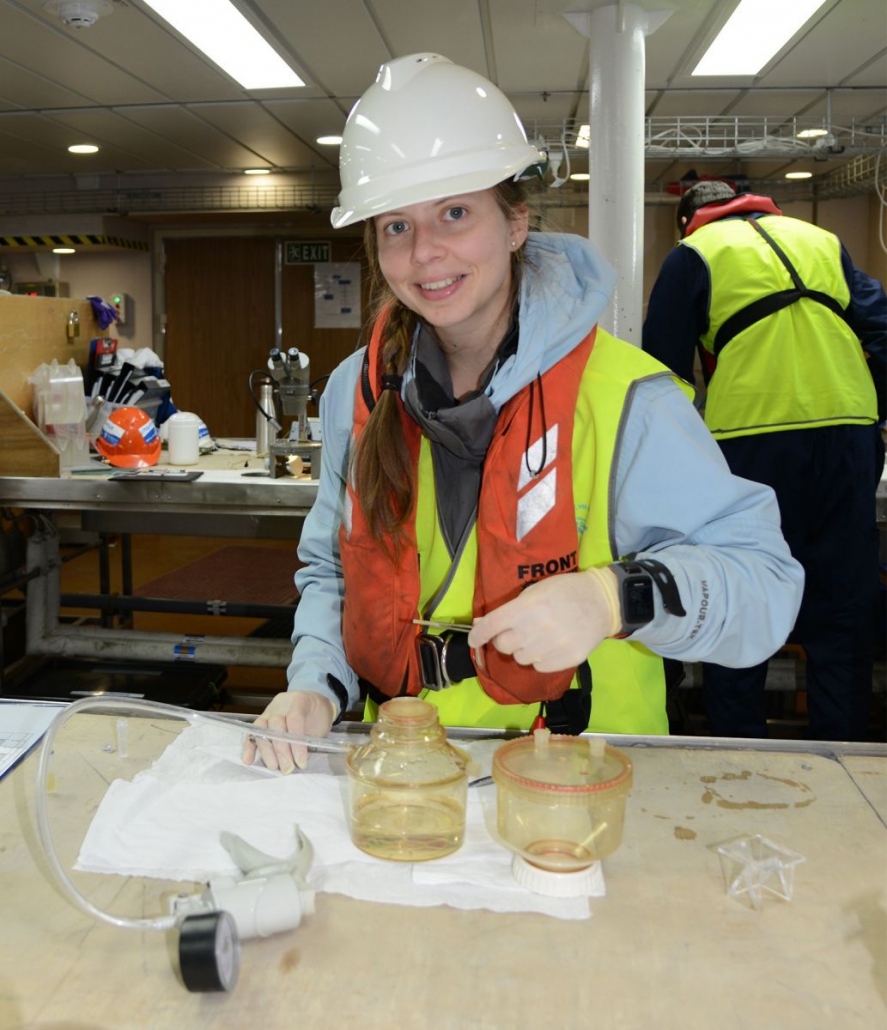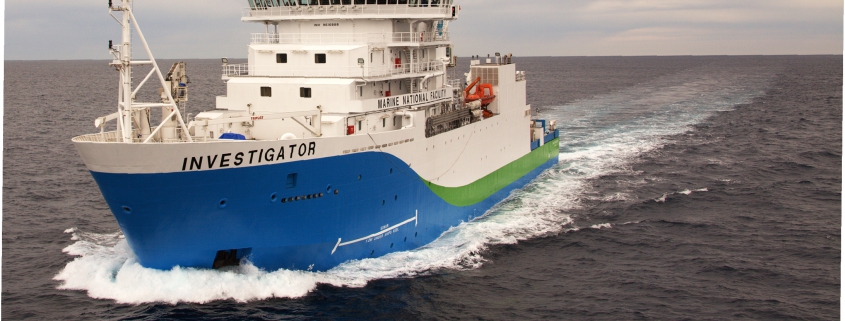Mapping the Ocean’s Plankton: One Ten East log
One Ten East Logs from the IIOE-2 voyage aboard RV Investigator will be posted on the WAMSI website during the month long voyage.
Log from One Ten East
The RV Investigator is currently undertaking oceanographic research along the 110°E meridian off Western Australia as part of the second International Indian Ocean Expedition. The voyage is led by Professor Lynnath Beckley of Murdoch University and the research is supported by a grant of sea time on RV Investigator from the CSIRO Marine National Facility.
| Date: June 07, 2019 | Time: 1200 AWST |
| Latitude: 15°S | Longitude: 111°E |
| Wind direction: NE | Wind speed: 16 knots |
| Swell direction: NE 1m | Depth: 5704 m |
| Air temperature: 28°C | Sea temperature: 27°C |
Mapping the Ocean’s Plankton
By Prof Andrew Jeffs
Oceans really are a microbial soup with just one litre of seawater containing 30,000–40,000 different types of microbes. Collectively these microbes make up 90% of life in the ocean by weight. They are the basis of food energy for ocean ecosystems and generate about half of the oxygen we breathe. Despite the huge importance of these microbes we know relatively little about their distribution and abundance in our oceans, and how this is changing. This is because they are microscopic and difficult to identify. However, advanced molecular genetic and computer cataloguing methods have progressed such that samples of seawater can be easily tested to identify all the resident organisms from their DNA signals.
A group of marine scientists and keen sailors now collect samples from around the world and contribute them to Plankton Planet Initiative, a global endeavour to map the world’s plankton to assess the biological health of our oceans. During the International Indian Ocean Expedition-2 110°East voyage, we are collecting daily samples along the 110°E line to contribute to this initiative.

Prior to deployment from RV Investigator, Prof Andrew Jeffs (University of Auckland) holds a microzooplankton net. Aimee van de Reis (PhD student, University of Auckland) holds the cod end, where the small plankton is collected. Photo: Micheline Jenner.

Aimee van de Reis (University of Auckland) filters the microzooplankton collected in the cod end of the net. Photo: Micheline Jenner.

